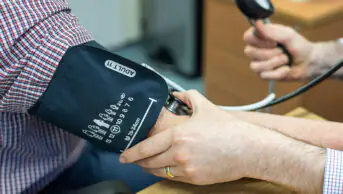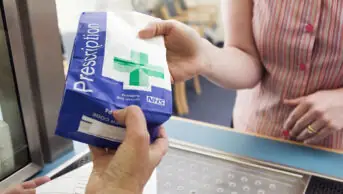
Shutterstock.com
Applications are now open for almost 3,000 funded pharmacist independent prescriber (IP) training places in England.
In what will be the biggest expansion in independent prescribing ever seen in pharmacy in England, pharmacists in almost all sectors will be able to apply for university courses that start between September 2022 and March 2023, although the application cut-off dates for different courses will vary.
The places, funded by Health Education England (HEE), are open to pharmacists who are working in primary care networks, NHS trusts, community, general practice, integrated care boards and those in prisons and secure environments.
In November 2021, Health Education England announced that £15.9m would be invested over four years through the pharmacy integration fund to support pharmacists and pharmacy technicians with professional career development, including IP training.
Matt Aiello, national programmes lead for education reform at HEE, said: “[HEE has] now confirmed our supplier list and are working to finalise contracts. Universities do not all open recruitment at the same time, so potential learners/their employers should contact their preferred course provider in the first instance, to confirm when recruitment opens and the process for applying.
“To ensure that learners are able to fit training around work and personal commitments, we have commissioned courses with start dates from September 2022 to March 2023.”
To be eligible for one of the training places, pharmacists must have found a designated prescribing practitioner (DPP) — an IP pharmacist, doctor, nurse or dentist who normally has at least three years of prescribing experience, and who is willing and able to supervise the hands-on or ‘experiential learning’ part of IP training.
However, concerns have been widely expressed that there are not enough DPPs to go around, particularly as the role is unpaid and requires the DPP to take time out of their normal daily duties.
In June 2022, HEE exclusively confirmed to The Pharmaceutical Journal that it would not be not providing backfill payments to support DPP roles.
William Swain, lecturer in practice and policy at University College London School of Pharmacy, said that having 3,000 funded IP places for pharmacists is “undoubtedly a positive step forward for the profession”.
“The range of providers and funding structure will mean that pharmacists from all patient facing sectors will have access to the training,” he said.
“That being said, the funding does not address the lack of trained supervisors (DPPs) and I suspect many pharmacists (particularly those in community pharmacy) may struggle to find a DPP. Another consideration is the roles in which these IP trained pharmacists go back in to. If they are not actively prescribing and developing their educational skills, then they will not be able to support supervision of the workforce in three years’ time.
“Funding IP for pharmacists is perhaps just one ingredient (albeit an important one) in the recipe for a sustainable model of training our future prescribing workforce.”
By 2026, IP training will form part of the pharmacy foundation training year — meaning that all pharmacists who successfully pass the registration assessment will become independent prescribers. Ahead of this, stakeholders, such as the Royal Pharmaceutical Society, have said that all members of the current pharmacist workforce should also be able to access IP training if they want it.
In May 2022, the General Pharmaceutical Council removed requirements for pharmacists to have been registered for two years before beginning IP training. Instead, they need to demonstrate relevant experience in a pharmacy setting and show they can recognise, understand and articulate the skills and attributes required by a prescriber, which will be assessed by the IP course provider.


